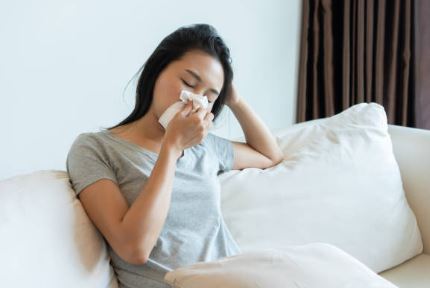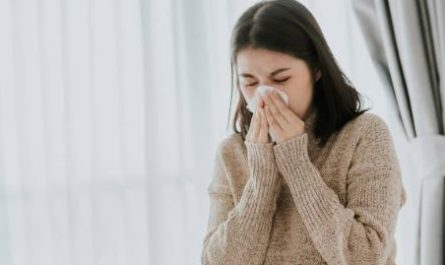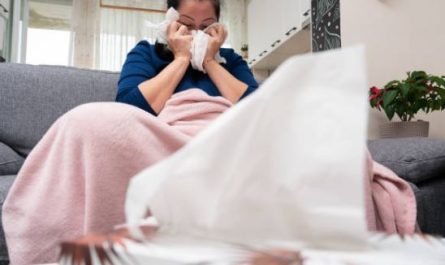Preventing pneumonia involves various measures aimed at reducing the risk of acquiring respiratory infections and maintaining a healthy immune system. Here are some key preventive measures for pneumonia.
Vaccination
Vaccines are one of the most effective ways to prevent certain types of pneumonia. Make sure to stay up to date with recommended vaccinations, including:
Pneumococcal Vaccine
The pneumococcal conjugate vaccine (PCV13) and pneumococcal polysaccharide vaccine (PPSV23) protect against the bacteria Streptococcus pneumoniae, a common cause of bacterial pneumonia.
Influenza Vaccine
Annual vaccination against influenza (flu) is recommended for individuals of all ages, especially those at higher risk of complications, such as young children, older adults, pregnant women, and individuals with certain medical conditions.
Hand Hygiene
Practicing good hand hygiene is crucial in preventing the spread of respiratory infections. Wash your hands thoroughly with soap and water for at least 20 seconds, especially before eating, after using the restroom, and after being in public spaces. If soap and water are not available, use alcohol-based hand sanitizers.
Respiratory Hygiene
Cover your mouth and nose with a tissue or your elbow when coughing or sneezing. This helps prevent the spread of respiratory droplets containing bacteria or viruses. Dispose of used tissues properly and wash your hands afterward.
Avoid Tobacco Smoke
Exposure to tobacco smoke, including secondhand smoke, weakens the respiratory system and increases the risk of respiratory infections, including pneumonia. Avoid smoking and limit exposure to smoke.
How to Maintain a Healthy Lifestyle
A strong immune system can help protect against respiratory infections. Take steps to maintain overall health, including:
1. Eating a balanced diet rich in fruits, vegetables, and whole grains to provide essential nutrients and support immune function.
2. Engaging in regular physical activity to strengthen the immune system and overall health.
3. Getting enough sleep to support immune function and overall well-being.
4. Managing stress levels, as chronic stress can weaken the immune system.
Avoid Close Contact with Sick Individuals
If possible, avoid close contact with individuals who have respiratory infections, including coughs and colds. Viral and bacterial infections can spread through respiratory droplets when an infected person coughs, sneezes, or talks.
Clean and Disinfect
Keep frequently touched surfaces clean and disinfected, especially in shared spaces or when someone in the household is sick. This can help reduce the transmission of respiratory pathogens.
Practice Respiratory Etiquette
Encourage others to follow good respiratory hygiene practices, such as covering their mouth and nose when coughing or sneezing, and disposing of tissues properly.
It’s important to note that these preventive measures can significantly reduce the risk of pneumonia, but they may not eliminate it entirely. If you have specific concerns or risk factors, consult with a healthcare professional for personalized advice and recommendations.
FAQS – Once you get a pneumonia can you get infected again?
Yes, it is possible to get pneumonia more than once. While recovering from pneumonia typically provides some level of immunity against the specific pathogen that caused the infection, it does not provide complete lifelong immunity. There are several reasons why a person can experience multiple episodes of pneumonia:
Different Pathogens
Pneumonia can be caused by various bacteria, viruses, fungi, or other microorganisms. Each pathogen triggers a specific immune response, and being infected with one type of pneumonia does not provide immunity against all other types. So, it is possible to develop pneumonia caused by a different pathogen in the future.
Reinfection
Even with the same pathogen, reinfection can occur if the immune system did not fully clear the infection or if a person is exposed to the same pathogen again. Reinfection can happen due to waning immunity or exposure to a different strain or variant of the same pathogen.
Weakened Immune System
Certain factors can weaken the immune system’s ability to fight off infections, making a person more susceptible to pneumonia. Chronic health conditions, such as diabetes, heart disease, or lung diseases like chronic obstructive pulmonary disease (COPD), can compromise the immune system and increase the risk of recurrent pneumonia.
Lifestyle Factors
Lifestyle choices, such as smoking, excessive alcohol consumption, poor nutrition, lack of exercise, and inadequate sleep, can impact immune function. These factors can weaken the immune system’s response to infections, making a person more susceptible to pneumonia and increasing the likelihood of recurrent episodes.
Environmental Factors
Exposure to environmental pollutants, including air pollution, secondhand smoke, and occupational hazards, can increase the risk of respiratory infections and recurrent pneumonia.
It’s important to note that while the risk of pneumonia recurrence exists, taking preventive measures, such as vaccination, practicing good respiratory hygiene, and maintaining a healthy lifestyle, can help reduce the likelihood of developing pneumonia and its recurrence. If you have concerns about recurrent pneumonia, it is advisable to consult with a healthcare professional for an evaluation of your specific situation and to discuss appropriate preventive measures.



